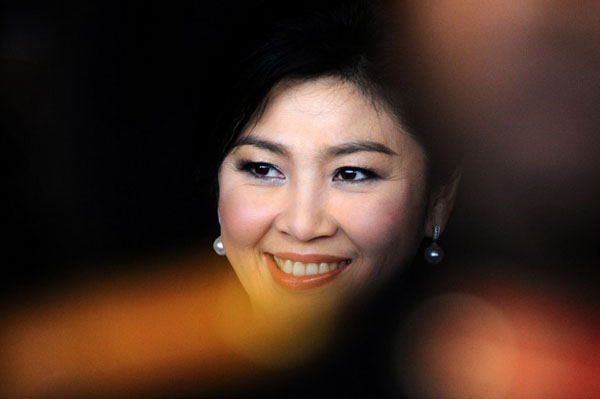Thai authorities have frozen seven bank accounts belonging to ex-prime minister Yingluck Shinawatra over a USD1 billion (THB35 million) fine she faces for her administration’s controversial rice subsidy scheme, her lawyer said today.
The move is seen as unprecedented because it financially sanctions an elected leader for a government policy, and it is the latest in a barrage of legal battles she has had to fight since she was booted from office.
Thailand’s first female prime minister, whose government was toppled in a 2014 coup, is already facing up to a decade in jail for allegedly failing to stop graft in the subsidy program that targeted her party’s rural farming base.
She was also retroactively impeached soon after the coup, a move that banned her from politics for five years.
Yingluck’s legal team had petitioned for an injunction against the USD1 billion (THB35 billion) fine—which dwarfs the roughly USD18 million (THB601 million) she has in publicly declared assets.
But the Finance Ministry said Monday it was moving ahead with the order and planned to seize at least 12 accounts belonging to the embattled politician as an initial measure.
Yingluck’s lawyer confirmed Tuesday that at least seven accounts had now been locked.
“Bangkok Bank notified us that seven of her bank accounts have been frozen and cannot carry out any transactions,” Noppadon Laowthong told AFP.
Yingluck, whose supporters have accused the junta of launching a political witch-hunt against her since seizing power, turned to Twitter to insist on her innocence.
“I am ready to prove my innocence and that I have not done anything wrong in my closing statement on Aug. 1,” she wrote in reference to the final stage of her criminal negligence trial over the rice scheme.
The verdict in that trial is due to be announced on Aug. 25.
Analysts say the junta and its establishment allies are bent on crushing the political machine led by Yingluck and her billionaire brother Thaksin Shinawatra, who was also ousted in a 2006 coup.
The siblings are beloved in Thailand’s poor northeast but loathed by Bangkok’s traditional elite, who keep knocking down their governments with coups and court rulings.
Under Yingluck’s flagship rice-pledging scheme the government bought paddy at nearly twice the market rate.
It cemented her popularity among many farmers but led to huge stockpiles of unsold rice and cost Thailand its spot as the world’s leading rice exporter.
Critics blasted the scheme as the latest graft-riddled populist handout by the Shinawatra camp, which has won every national election since 2001.
The junta claims the policy cost Thailand around USD8 billion (THB267 billion) in lost revenue.
The subsidy scheme helped galvanize elite-backed protests in Bangkok that paved the way for the 2014 coup.





Reader Interactions